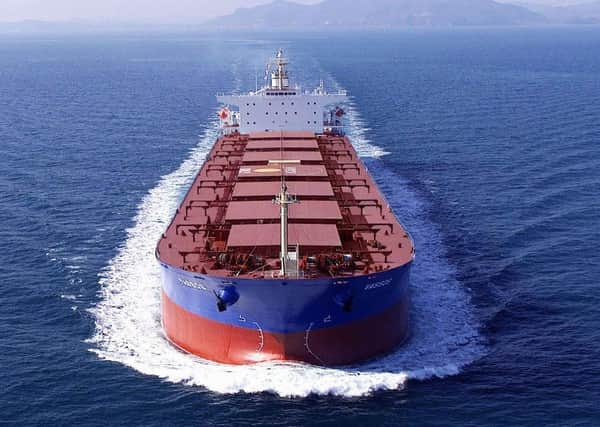Brexit uncertainty continues


With Northern Ireland still operating to EU rules after the rest of the UK has exited, import checks on many goods arriving from Great Britain will be inevitable as the UK diverges from the European Union standards and tariffs.
“Our traders looking to source materials and set up shipping programs for next winter don’t know if they can access UK grains without having to pay duty or what level of import inspections will apply. Opportunities to source from the cheapest origins could be missed while key questions remain unanswered,” according to Robin Irvine of the Grain Trade Association.
Advertisement
Advertisement
“If no deal can be agreed, tariffs of up to £60 Million could be payable on imported feed materials if they are deemed to be at risk of entering the EU (Republic of Ireland). These tariffs should be refundable at the point of consumption if it can be proved that they remain in Northern Ireland. Given that the point of consumption is on Northern Ireland’s 25,000 livestock farms this would be a massive administrative burden for which no rebate system has yet been tabled by HMRC.
“The Northern Ireland Protocol claims to offer an opportunity for the province to enjoy trade within both Europe and Great Britain with unfettered export access to these regions. However, the practical application of the protocol will determine if true unfettered access can be achieved, or if administrative, and cost barriers prevent full rollout as the UK Government intended. With 75% of Northern Ireland’s Agri food output consumed beyond these shores (around half travelling across the Irish Sea to Great Britain while 25% is exported to the EU), it is vital that the food we produce is competitive in both regions.
“On the other hand, the province’s milk, meat and egg producers are dependent on access to the global marketplace for feed materials – imports of close to 3 million tonnes are required to meet the demand with around 10,000 tonnes of compound feed and feed materials delivered to livestock farms every day. Great Britain is the obvious and most convenient source of wheat and barley with half a million tonnes shipped into Northern Ireland in a typical year. A further 1.5 million tonnes comprising mainly maize, maize by-products, soya and soya hulls are sourced from third countries while the balance will come from Europe.
“A number of these commodities are subject to specific EU trade agreements and depending on how these will be applied in the future there is the potential for distortion of trade or disruption to these flows – adding further cost to our livestock sector.
Advertisement
Advertisement
“The clock is ticking on the six month countdown and the key questions are still to be answered to a level that will allow us to have confidence to source materials from the UK or Eastern Europe from 1st January 2021 onwards.”